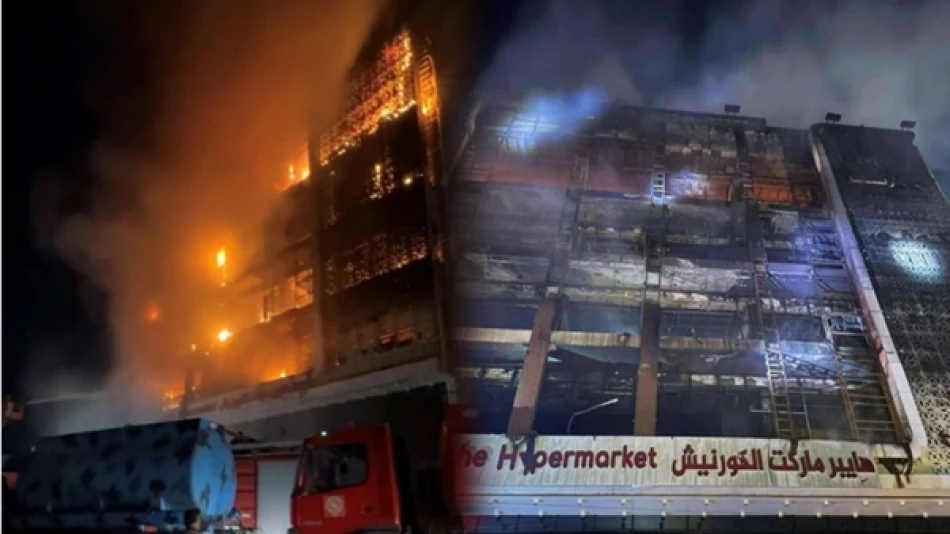
Iraqi Wasit Governor Facing Probe After Devastating Fire Incident
Iraqi Governor Faces Investigation After Mall Fire Kills 63 in Accountability Push
Iraqi Prime Minister Mohammed Shia al-Sudani has ordered the investigation of Wasit Province Governor Mohammed Jamil al-Miyahi following a devastating mall fire that killed 63 civilians and injured over 50 others last week. The move signals a rare moment of high-level accountability in Iraq's often opaque governance system, as public pressure mounts for officials to face consequences for safety failures.
Investigation Results Point to Leadership Failures
During the Iraqi government's weekly session on Tuesday, al-Sudani endorsed the findings of a special investigative committee formed to examine the fire at a hypermarket in Kut city. The committee's conclusions directly implicated Governor al-Miyahi in his capacity as head of the province's civil defense committee, citing failures in oversight and safety protocols that may have contributed to the tragedy's scale.
The governor has accepted the investigation results and expressed willingness to appear before any committee, stating his commitment to ensuring "fair, transparent, and truthful results." This cooperative stance contrasts sharply with typical responses from Iraqi officials facing accountability measures, suggesting the political pressure surrounding this incident runs deeper than usual.
Broader Crackdown Reveals Systemic Issues
The investigation has already resulted in the arrest of three officers and 17 administrative officials in Wasit Province, indicating the scope of alleged negligence extends well beyond individual failures. This systematic approach to accountability reflects growing public frustration with safety standards in Iraq's commercial infrastructure.
Pattern of Infrastructure Failures
The Kut mall fire represents the latest in a series of infrastructure-related disasters that have plagued Iraq in recent years. Hospital fires, building collapses, and industrial accidents have repeatedly exposed gaps in safety enforcement and regulatory oversight. Unlike previous incidents that often resulted in limited consequences for officials, this case appears to be triggering more comprehensive accountability measures.
Political Implications for al-Sudani's Government
The swift action against a provincial governor demonstrates Prime Minister al-Sudani's attempt to project competence and responsiveness in the face of public tragedy. For a government already facing challenges with service delivery and infrastructure development, the handling of this crisis could significantly impact public confidence.
The decision to investigate a sitting governor also sends a message to other provincial leaders about expectations for safety oversight. This top-down accountability approach marks a potential shift in Iraq's governance culture, where high-ranking officials have historically faced limited consequences for administrative failures.
Safety Standards Under Scrutiny
The mall fire has intensified focus on Iraq's commercial building safety standards and enforcement mechanisms. The scale of casualties in what should have been a routine commercial space highlights fundamental weaknesses in fire safety protocols, emergency response capabilities, and regulatory compliance.
As Iraq continues rebuilding its economy and attracting investment, incidents like this underscore the critical importance of robust safety infrastructure. International businesses and investors closely monitor how governments handle such crises, making the response a factor in Iraq's broader economic development efforts.
Most Viewed News

 Layla Al Mansoori
Layla Al Mansoori






